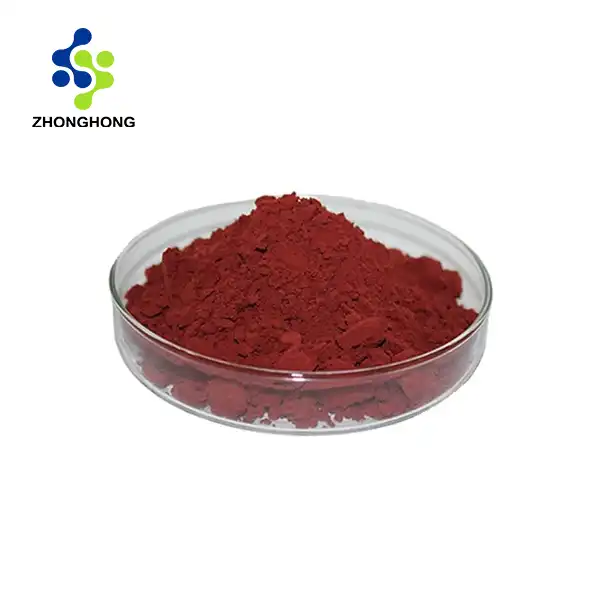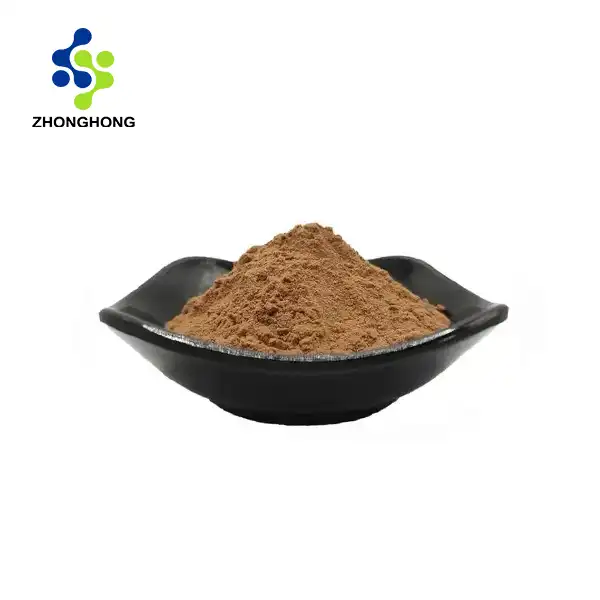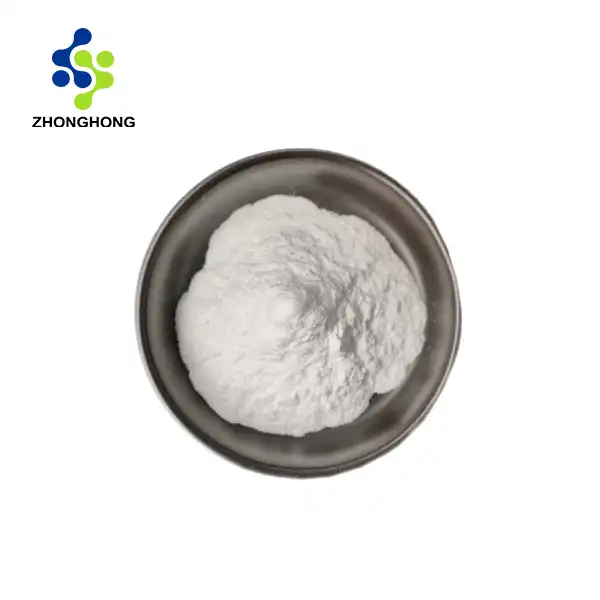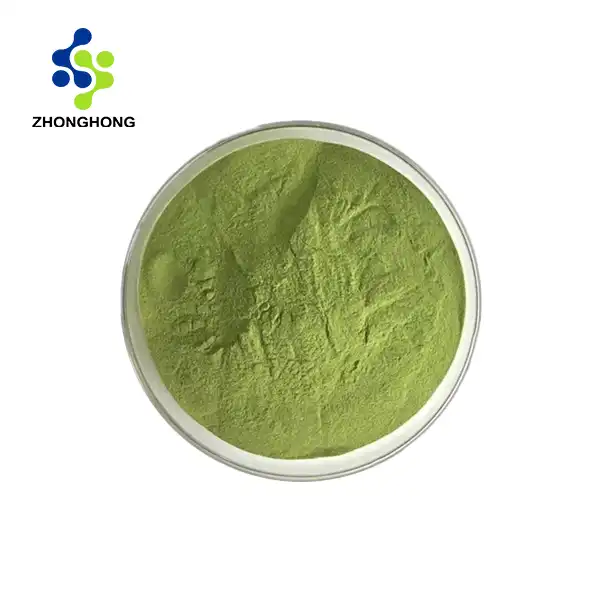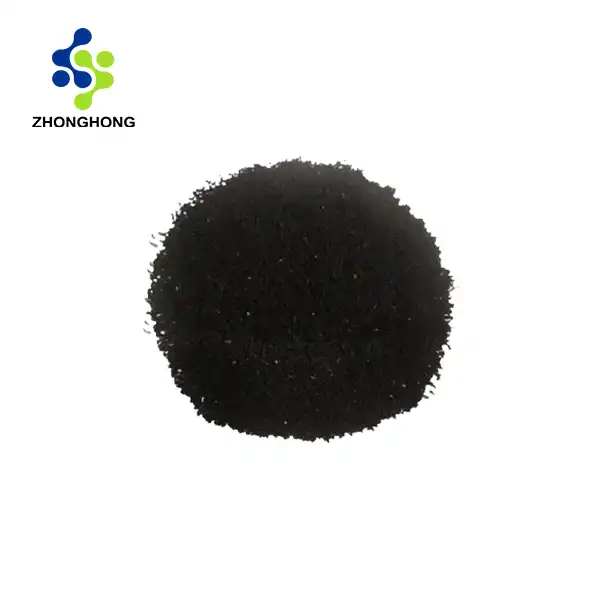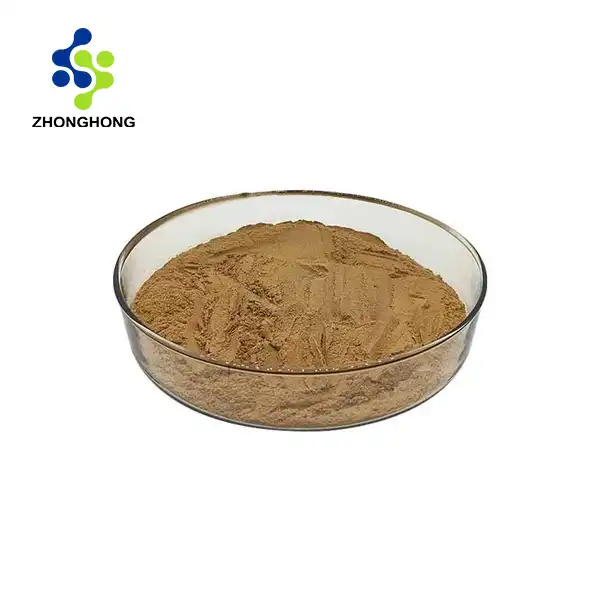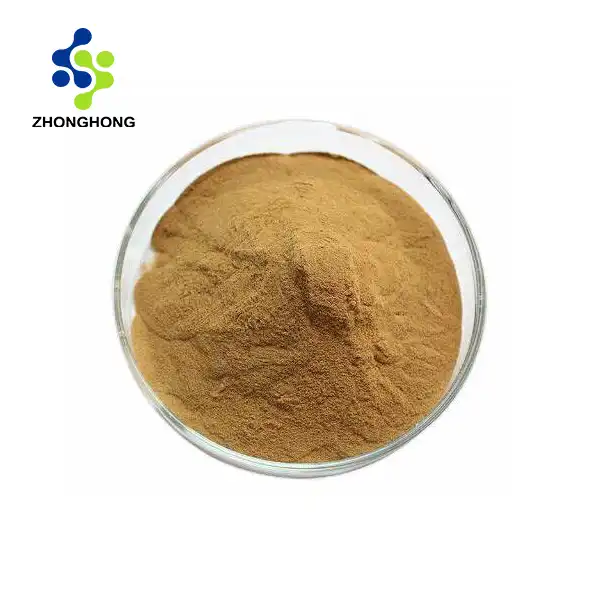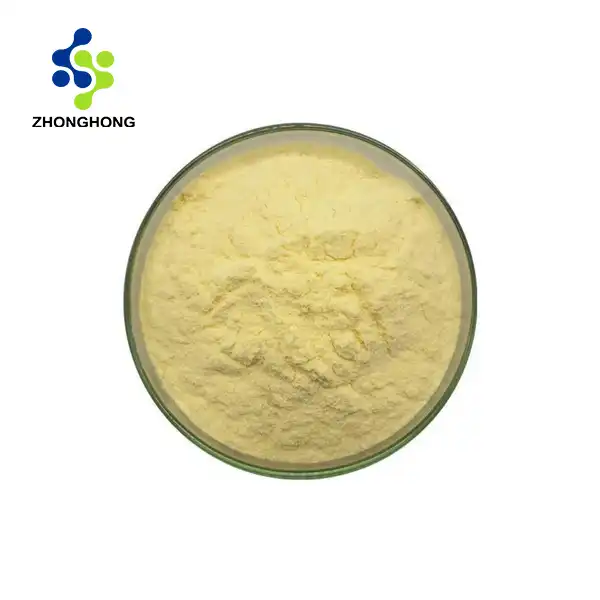Does seaweed have polysaccharides?
2024-11-21 21:16:56
Polysaccharides, which are complex carbohydrates with a wide range of economic uses and exceptional biological activity, are found in seaweed. Alginate, carrageenan, and fucoidan are examples of polysaccharides that come from various seaweed species. Their gelling, thickening, and stabilizing qualities make them essential in food, cosmetics, and medicinal goods. They are also useful in health and wellness products because of their immune-modulating, anti-inflammatory, and antioxidant properties. Industries are better able to utilize seaweed polysaccharides when they are aware of their varieties and advantages.
What Are Seaweed Polysaccharides?
Seaweed polysaccharides are naturally occurring carbohydrates found in the cell walls of seaweeds. These compounds contribute to the structure and flexibility of seaweed, allowing it to thrive in aquatic environments. Here are some of the most important types:
1. Alginate
Alginate is a major polysaccharide derived from brown seaweed. It is widely used in food and pharmaceutical industries for its gelling and stabilizing properties. Alginate helps create soft textures in foods like ice cream and is used in wound dressings due to its moisture-retentive properties.
2. Carrageenan
Found in red seaweed, carrageenan is known for its thickening and emulsifying abilities. It is a key ingredient in dairy and plant-based products, providing creaminess without adding fat. Additionally, carrageenan has applications in pharmaceutical formulations.
3. Fucoidan
Fucoidan, another polysaccharide from brown seaweed, is prized for its health benefits. It exhibits antioxidant and anti-inflammatory properties, making it a focus of research for potential therapeutic uses in immune health and chronic diseases.
Seaweed polysaccharides vary by seaweed type, making them versatile across numerous industries.
How Are Seaweed Polysaccharides Used in Industry?
Seaweed polysaccharides are incredibly versatile, finding applications across pharmaceuticals, food, cosmetics, and biotechnology:
1. Pharmaceuticals
- Alginate in Drug Delivery: Alginate is widely utilized in pharmaceuticals for its ability to form hydrogels, which help control the release of active ingredients, ensuring effective and sustained drug delivery.
- Fucoidan’s Health Potential: Fucoidan is extensively studied for its immunomodulatory properties, offering potential applications in boosting immune health, combating viral infections, and even serving as a supportive agent in cancer therapies.
- Carrageenan in Formulations: Carrageenan is a versatile ingredient in pharmaceuticals, used to create gel capsules, stabilize liquid medications, and support wound healing with its soothing and protective properties.
2. Food and Beverages
Seaweed polysaccharides like carrageenan, agar, and alginate are widely used in food production to enhance texture and consistency. They stabilize emulsions in yogurt, prevent separation in sauces, and thicken desserts, ensuring an appealing and uniform product. Carrageenan is a key ingredient in plant-based milks, providing a creamy texture and preventing ingredient separation. In processed meat products, it improves water retention and enhances texture, contributing to a juicier and more appealing final product. Alginate plays a pivotal role in molecular gastronomy, enabling chefs to create innovative dishes. It forms heat-resistant edible gels and spheres, often used for encapsulating flavors, creating caviar-like pearls, or crafting unique culinary textures that captivate diners.
3. Cosmetics
Seaweed polysaccharides, such carrageenan and fucoidan, are prized in cosmetics for their capacity to increase skin suppleness and retain moisture. By improving moisture, minimizing fine wrinkles, and promoting skin renewal, these substances aid in the reduction of aging symptoms. Because polysaccharides keep ingredients from separating and guarantee constant performance, they increase the stability of skincare formulas. Their gel-like qualities give creams and serums silky, opulent textures that improve user satisfaction while preserving the product's effectiveness over time.
4. Biotechnology
Seaweed polysaccharides like alginate and carrageenan are extensively used in biotechnology due to their biocompatibility and gel-forming abilities. They create scaffolds for tissue engineering, supporting cell growth, and serve as carriers in drug delivery systems, ensuring controlled release and targeted therapy.
What Are the Health Benefits of Seaweed Polysaccharides?
Seaweed polysaccharides are associated with numerous health benefits, making them valuable in the wellness sector:
1. Antioxidant Properties
Seaweed polysaccharides, including fucoidan and carrageenan, are potent sources of antioxidants that neutralize harmful free radicals in the body. By reducing oxidative stress, these compounds help protect cells from damage, potentially lowering the risk of chronic diseases such as cardiovascular conditions, diabetes, and cancer. Regular consumption of seaweed polysaccharides may also enhance skin health and delay signs of aging caused by environmental factors like UV radiation and pollution.
2. Immune Support
Polysaccharides extracted from seaweed have shown immunomodulatory effects, boosting the activity of immune cells such as macrophages and natural killer cells. These effects can enhance the body’s ability to fight infections and may provide added protection against viruses and harmful pathogens. Additionally, some studies suggest that seaweed polysaccharides could improve vaccine efficacy and support overall immune resilience, making them valuable in promoting long-term health.
3. Gut Health
Alginate and carrageenan, as soluble dietary fibers, play a critical role in digestive health. They promote regular bowel movements, improve gut microbiota balance, and act as prebiotics to support the growth of beneficial bacteria, thereby enhancing nutrient absorption and reducing gastrointestinal discomfort.
4. Anti-Inflammatory Effects
Seaweed polysaccharides exhibit strong anti-inflammatory properties by modulating inflammatory pathways and reducing cytokine production. These effects can alleviate symptoms of inflammatory conditions, including arthritis and inflammatory bowel diseases, offering a natural alternative to managing chronic inflammation and improving overall quality of life.
Conclusion
Alginate, carrageenan, and fucoidan are examples of seaweed polysaccharides that are useful and adaptable substances having uses in a variety of sectors. Their special qualities enable a wide range of applications, including medication delivery systems, immunological health, and food stability. Products may be made more innovative and functional by using seaweed polysaccharides. If you want to get more information about this product, you can contact us at liaodaohai@gmail.com.
References
1. Craigie, J. S. (2011). Seaweed extract stimulants in agriculture.
2. Holdt, S. L., & Kraan, S. (2011). Bioactive compounds in seaweed: functional food applications and legislation.
3. Jiao, G., Yu, G., Zhang, J., & Ewart, H. S. (2011). Chemical structures and bioactivities of sulfated polysaccharides from marine algae.
4. Kim, S. K., & Wijesekara, I. (2010). Development and biological activities of marine-derived bioactive peptides: A review.
5. McHugh, D. J. (2003). A guide to the seaweed industry. FAO Fisheries Technical Paper.
6. Percival, E. (1979). The polysaccharides of green, red, and brown seaweeds.
_1728976869676.webp)
